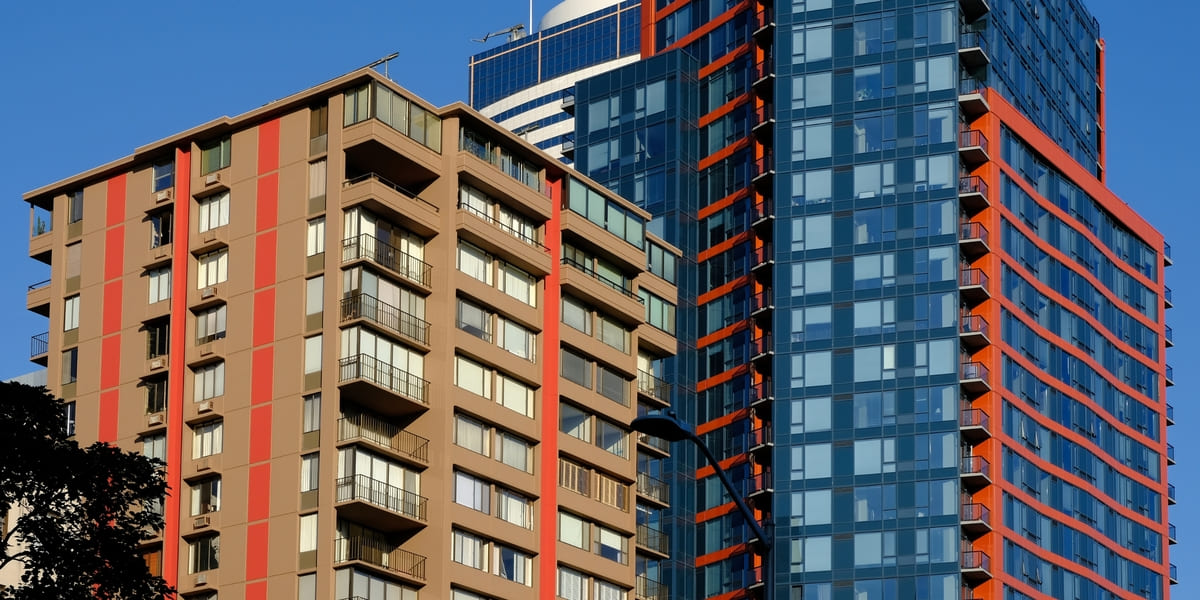1 min read
The Benefits of Technology in Property Management
Too many tenants are late on rent. Your bookkeeping is a mess. There are a lot of great reasons to consider augmenting your multifamily investment...
4 min read
Jan Wieder : Aug 3, 2020 11:25:00 AM
As the old adage goes, you have to spend money to make money. As the landlord of an apartment complex or other multifamily dwelling in the Seattle area, you know operating costs are unavoidable.
Even after the initial investment in the property, regular and ongoing apartment operating expenses must be factored into running such a business over the long term. When the costs to maintain and manage your property eat away too much of your profit, however, there’s a problem that must be addressed.
The only way to gain a significant return on investment (ROI) for your apartment complex is to ensure the profits far outweigh the costs. To that end, there are a few common rules and real estate formulas to use when it comes to purchasing and operating a rental property:
The 50% rule states simply that the total expenses associated with operating a multifamily investment should be, on average, about 50% of the gross revenue from rental payments. Common expenses you deal with as a Seattle landowner include taxes, insurance, property management, marketing, administrative costs, legal fees, and repairs and maintenance. This does not factor in your mortgage, which should be subtracted before applying the 50% rule. However, there are also ways to generate cash flow besides rental fees.
The 70% rule is a bit more complex, but still a good standard to adhere to. The rule states you should not pay more than 70% of the after repair value (ARV), minus repair costs, when investing in a new property. You can use this guideline when evaluating prospective deals, but it doesn’t provide much insight when it comes to the average maintenance cost for an apartment complex.
The 2% rule states the cumulative rent you draw for a rental property should account for 2% of the purchase price. In other words, you should avoid purchasing a multifamily or single-family rental property if you are unable to set rent at 2% of the all-in price of the property. The problem with the rule is that while it promises spectacular cash flow, it doesn’t account for the fact that rehab and upkeep expenses for low-priced properties are usually on par with those for more expensive properties.
Ultimately, you must decide what your Seattle apartment complex is worth to you and what rate of return you expect on your investment. If you’re unsatisfied with your current profit margin, here are some ideas for both reducing operating costs and enhancing revenue:
Certain upgrades on your multifamily property can improve energy efficiency and also positively impact your bottom line. For example, install low-flow shower heads and toilets to reduce water consumption. Switch the lighting in common areas to LED. If you are looking for more ideas, check out Seattle City Light, which helps multifamily building owners create a strategy for enhancing energy efficiency and even provides incentives for doing so.
Hidden leaks on your property can increase your water consumption by about 30% to 40%, which creates waste in that area. Rather than waiting to find out via an inordinately high water bill, you or your property manager should regularly monitor your water meters to make sure the consumption is steady. If there are unexpected spikes, you know to check for leaks.
If your landscaping design requires lots of water or regular upkeep, consider making a few modifications. Remove plants or change any landscaping features that are water-heavy and use more hardscaping and plants that are indigenous to the Pacific Northwest. If you do have an irrigation system, periodically check to make sure it’s in order and replace broken parts, install drip systems, and add sensors to help with using water efficiently. Consider installing artificial grass in certain areas.
Your building expenses may be higher if the structure is not in optimal condition. Certain capital improvements can save you money if they address an issue while it is still minor, rather than letting it burgeon into something major and more expensive to fix. Adopting a preventative maintenance strategy leads to cost savings in the long run. Also, make sure your attics and roof access areas are air-sealed and properly insulated and look into solar options to reduce energy costs.
It’s normal to get into routines and stick to what you know, even when it comes to the professionals you rely on to provide various services. However, it doesn’t hurt to annually get new insurance quotes and price shop for new service providers and vendors. Also, when it comes to cable, Internet, and phone connections, ask providers if they offer a wholesale rate that is significantly better than the retail rate. You can assume the entire cost upfront, but add a percentage to all the tenants’ rent. Additionally, if your property taxes seem too high, don’t be afraid to request a re-assessment.
Ultimately, your profits depend on the units of your South Puget Sound apartment building being consistently rented out. The first step is reducing turnover and improving occupancy rates by effective marketing, vetting prospective renters, and properly managing your property and tenants. However, you can also reduce vacancy rates by reviewing your makeover/turnover process and taking steps to decrease the amount of time that transpires from one tenant moving out and another moving in.
Besides rent, you can make a profit from your apartment complex near Seattle by charging for parking spaces, pet rent, installing vending machines, enhancing your fitness center, or offering storage space. You can also have a club house that you rent out for a fee for special events. Onsite laundry facilities, mini marts and coffee bars also are opportunities for additional income. Features and amenities that are in demand include outdoor living spaces, in-unit laundry appliances, central air conditioning, and personal security systems. Incorporating these features helps you not only attract new tenants but also retain them.
Although hiring a professional property management company is an additional expense, it is one that pays for itself by helping you reduce operating costs and implement profit-enhancing measures. Powell Property Management offers a full range of services to assist you in managing various types of residential properties, including apartment complexes and multifamily buildings. We not only handle the administrative responsibilities for your property to save you time and stress, but we also explore various ways to improve the value and help you make the most of your investment.

1 min read
Too many tenants are late on rent. Your bookkeeping is a mess. There are a lot of great reasons to consider augmenting your multifamily investment...

Managing your real estate investment is like any other type of business enterprise. It involves careful record-keeping, tracking income from your...

In the competitive rental markets of South Seattle and South Puget Sound, understanding and managing tenant turnover is crucial for maintaining...